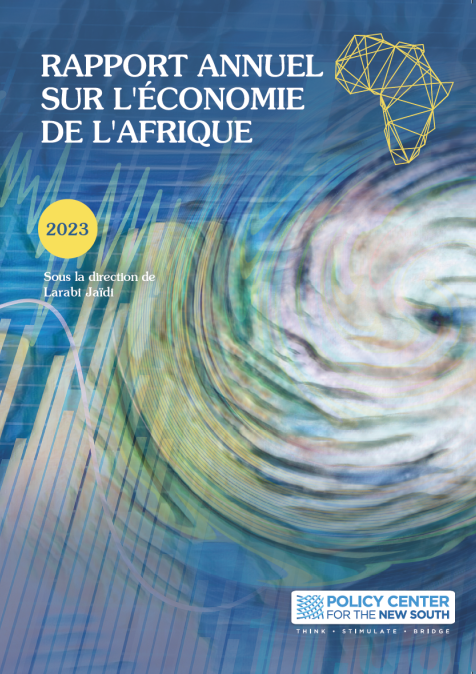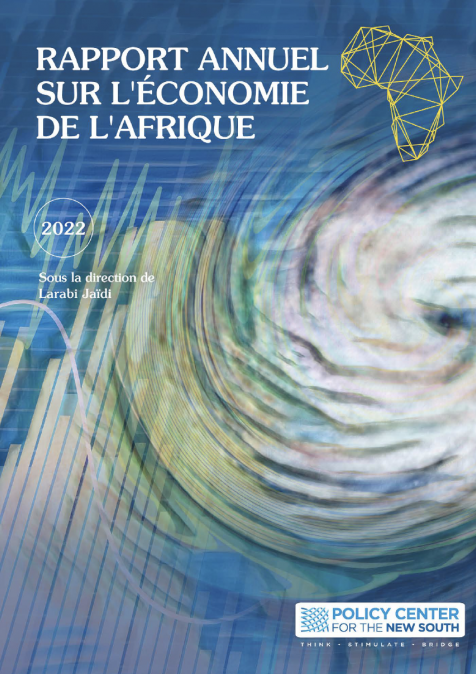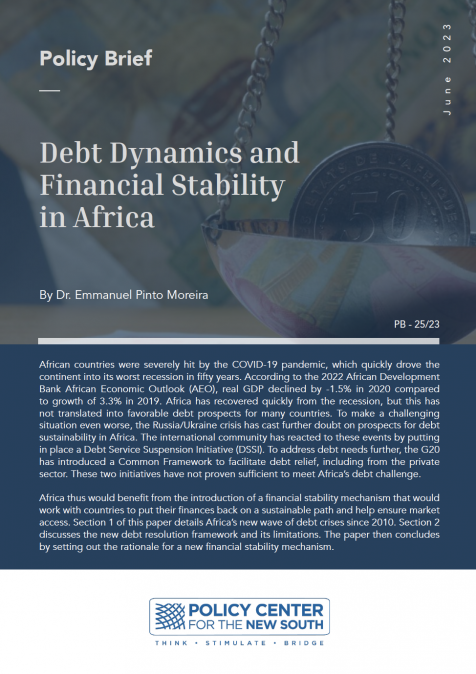Publications /
Opinion
The contemporary global energy landscape is experiencing noteworthy changes in demand, supply, technology, markets, and investment. These developments transcend conventional oil and gas security considerations. Renewable energy sources, such as wind and solar power, have become increasingly cost-effective compared to fossil fuels, and the minerals required to produce them are gaining importance. Nevertheless, recent events such as the Covid-19 pandemic and the conflict in Ukraine have temporarily refocused attention on oil and gas. Despite this, the ongoing transition towards a sustainable energy future implies that the world confronts a distinct type of crisis whereby nations need to balance immediate energy security and economic progress with long-term decarbonization. Considering these transformations, an interconnected and integrated energy system is more crucial than ever, particularly in the southern Mediterranean region.
From an economic perspective, the case for South-South integration is clear. The existing boundaries between countries resulting from geographical distances, inadequate infrastructure, and ineffective policies hinder economic growth. Theoretically, regional integration allows countries to overcome these costly divisions by integrating goods, services, and markets, facilitating the flow of trade, capital, energy, people, and ideas. Shared physical and institutional infrastructure is vital for achieving regional integration. Specifically, it requires countries to cooperate on (i) trade, investment, and domestic regulation; (ii) transport, information and communications technology (ICT), and energy infrastructure; (iii) macroeconomic and financial policies; and (iv) the provision of other common public goods (e.g., shared natural resources, security, education).
The significance of accelerating regional integration cannot be overstated in the aftermath of various crises that have disrupted Mediterranean countries' economies in recent years. Amongst numerous avenues for pursuing this agenda, few are as crucial as energy at present. Intra-Mediterranean trade is currently valued at less than $1 trillion per annum, representing only a third of the trade between the Mediterranean and the rest of the world. In contrast, prosperous regions frequently display patterns where neighboring countries are their most prominent trading partners. Energy constitutes roughly a third of the regional trade within this narrow ambit. Additionally, trade links among southern Mediterranean countries are minimal, with most trading occurring between these countries and the European Union, especially in the energy sector. As such, the Euro-Mediterranean energy relationship has yet to transition from a bilateral approach to a more regional approach.
Achieving an interconnected energy market is not a simple process. Several factors hinder regional integration and need to be identified and addressed. Countries may prioritize regional integration differently while assessing its impact on trade and investment flows, economic activity allocation, and income distribution can be challenging. The North African electricity interconnections provide an illustrative example of these challenges. Due to energy policies oriented towards national interests, the North African power systems are fragmented into five separate electricity markets predominantly governed by monopolistic state utilities. Despite some efforts to promote regional cooperation and the desire to establish integrated power markets in the future, electricity exchanges between the five North African countries remain negligible due to insufficient physical electricity interconnections. To a slightly greater extent, electricity trade occurs more between North Africa and its neighbouring regions of Europe and the Middle East. For instance, in 1997 and 1998, the first electricity interconnectors were constructed between Morocco and Spain and between Egypt and Jordan respectively. In 2006 a second interconnection between Morocco and Spain was built, providing a combined nominal capacity of 1.4 GW, and in 2019, Spain and Morocco signed a Memorandum of Understanding to build a third electricity interconnection cable between both countries to be commissioned in 2026.
Furthermore, unsuitable complementary policies and institutions can lead to ineffective outcomes. In addition, regional integration may result in winners and losers, with some groups or regions benefiting more than others, even within the same country. Therefore, an effective and transparent institutional governance framework is equally vital in addition to physical infrastructure. This is necessary for regional integration to achieve significant scale and attract new private and public traders. It entails the formulation of market rules and regulations that encourage equitable competition, as well as the introduction of appropriate financing mechanisms. A level playing field also necessitates that some electricity trade be based on international fuel prices, promoting domestic policy reforms aimed at phasing out subsidized generation fuels and ending user tariffs.
Notwithstanding these challenges, leveraging the potential for greater economic integration among the southern Mediterranean countries could have a transformative impact on the energy landscape. Fossil fuels continue to dominate energy production and trade in the region, with Algeria, Libya, and Egypt being the primary producers, while Morocco and Egypt are experiencing an upswing in renewable energy usage. Furthermore, several external factors, such as Europe’s heightened demand for oil and gas in the short run, influence energy policies in the southern Mediterranean. However, this raises the issue of balancing Europe's energy requirements with domestic demand. In this sense, Algeria has demonstrated its willingness and capacity to increase gas supplies to Europe, while Egypt is making strides in establishing itself as a vital regional hub for natural gas processing and re-exportation, on the condition that domestic demand will systematically take precedence over exports.
Consider the example of natural gas and its potential role in fostering regional integration in the Eastern Mediterranean. The region's significant gas reserves are primarily located in deep water, which makes production costs prohibitively high. As a result, identifying markets where gas can be competitive is a primary challenge, and exploration and development efforts will not be feasible until the competitiveness of the known resources is established. To this end, regional cooperation could be instrumental in unlocking the value of gas in the region. Achieving competitive prices necessitates large-scale trading, as gas value chains typically require a sizable resource that can be efficiently linked to a significant market. Such an undertaking would justify the necessary investment in infrastructure for gas transport. One promising development in this regard is the East Mediterranean Gas Forum (EMGF), which offers a platform for regional cooperation among gas-producing and consuming countries in the Eastern Mediterranean.
In essence, the objective of the EMGF is to enhance collaboration among governments and minimize expenses and risks, draw in investors, and enhance market competitiveness for the area's gas industry. Such a gas hub for the Eastern Mediterranean region could develop on the northern coast of Egypt, based on the strengths of Egypt's domestic gas demand and the possibility of using its infrastructure to handle supplies from neighboring countries. Nonetheless, several aspects require attention to ensure the success of this regional collaboration initiative. These comprise the liberalization of the gas market to encourage competitive trade, the synchronization of pricing mechanisms, and the elimination of trade hindrances such as energy subsidies. Additionally, implementing an enabling fiscal framework to cut the cost of gas supply to regional and international markets and facilitate the use of shared infrastructure is also essential.
Regarding renewable energy, several initiatives are currently underway in the southern Mediterranean region, such as solar, wind, and hydrogen projects, specifically in Egypt and Morocco. In particular, North Africa has increased its renewable energy production by 40% over the last decade adding 4.5 GW of wind, solar PV, and solar thermal capacity to its renewable energy power fleet. However, these endeavors appear to be primarily led by individual countries, and there is no discernible and effective regional South-South cooperation. There is also emerging competition in this region, especially regarding clean hydrogen development. The European Union's interest in this emerging market and its potential as an export market could exacerbate this competition.
Furthermore, several technical, financial, and economic barriers hinder the development of a cost-competitive hydrogen industry. The development of an efficient and sustainable hydrogen industry requires significant investment in research and development, as well as in infrastructure. Moreover, the cost of renewable energy technologies, such as solar and wind, must continue to decrease to make the production of green hydrogen cost competitive. Additionally, the lack of regulatory frameworks and the absence of adequate financing mechanisms pose significant obstacles to establishing a hydrogen industry in the region.
In conclusion, international experience demonstrates that developing regional institutional capacity, acquiring the necessary financing to improve infrastructure, and establishing a cooperative security framework are intricate processes that demand sustained and active multi-party collaboration, bolstered by member states' political commitment and good governance. While this work may not be swift or simple, it is indispensable to enhancing energy market linkages, promoting regional development, and ensuring stability. Achieving the numerous benefits of greater South-South energy integration relies on fostering a collective willingness to cooperate on regional trade agreements, adopting market-based energy prices across the region, and developing shared infrastructure, such as pipelines and power grids, to facilitate energy resource transportation and distribution among regional countries. In addition, harmonizing regulations and policies could create a more cohesive regional energy market, which is currently characterized by a patchwork of regulations and policies. Sharing technology and expertise among countries in the region represents another crucial element of promoting energy integration. Furthermore, ensuring a fair distribution of benefits could alleviate potential disparities that energy integration may generate among.










